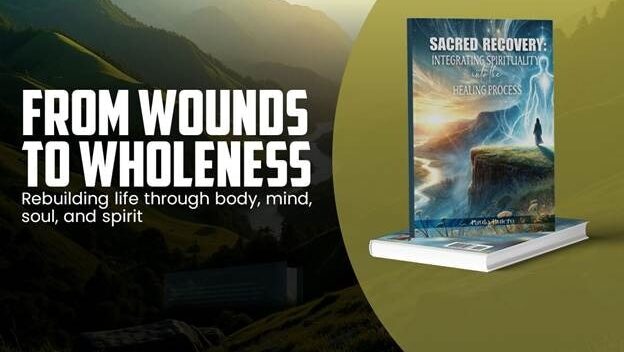The term “trauma” is taken from the Greek word “τραῦμα,” meaning wound. And like a wound, trauma doesn’t always fully heal, especially when it’s misunderstood.
Recovering your body and mind in the aftermath of a traumatic incident is a multi-step process. Rather than some sort of one-and-done quick fix, working through trauma requires dedication, discipline, and resilience. Many assume attending therapy or journaling is enough to fix everything magically, but recovery is rarely that simple.
This fundamental misunderstanding often originates from media depictions of trauma and healing. A character attends therapy once or twice, has a breakthrough, and feels healed by it in the following scene. But in real life, healing is often a multi-faceted, messy, spiritual, and exceedingly personal journey.
Fortunately, Paula Butero’s new book, Sacred Recovery: Integrating Spirituality into the Healing Process, offers invaluable insight into the recovery process and provides an authentic approach through which you can make strides toward healing.
How Trauma Lingers Across the Self
Following a tragic incident, the effects of trauma don’t just fade away. From your body to your mind to your soul, trauma tends to seep into every facet of your life and the way you perceive yourself. That’s why any true healing journey needs to equip you with the tools to alleviate these symptoms and reconnect with your authentic self.
Body: Where the Wound Lives On
The body is often thought of as the most obvious part of trauma, yet it communicates in ways we may not expect. Symptoms such as chronic tension, tiredness, sleep problems, and even sickness are commonly associated with lingering traumatic effects held within the body.
Renowned psychiatrist Jacob Levy Moreno once said, “The body remembers what the mind forgets.” Butero echoes this idea, encouraging trauma survivors to tune in rather than tune out. In Sacred Recovery, she recommends grounding practices such as mindfulness, breathing, and intentional rest, all of which are tools to help you make peace with your body.
Mind: Silencing the Inner Critic
Trauma can feel like an unwelcome guest that has taken up permanent residence in your mind. It suddenly moves in and shows no signs of leaving, intruding upon your most personal moments, even when you long for it to go. Trauma frequently seizes control of internal conversations and feeds survivors shame, dread, and self-doubt.
Butero offers an alternative approach, advocating for compassionate thought work. By replacing fear-based narratives with affirmations, scripture, and journaling, you can soften the internal critic into a companion.
Soul: Rediscovering Your Identity
Perhaps worst of all, trauma can cause survivors to question their very existence in profound ways. When an incident occurs that shakes you to your very foundation, it can be difficult to remember who or what motivated you before that event. This leaves many survivors struggling with a sense of purpose and self-worth.
According to Butero, creative expression, like writing, music, or prayer, can help the soul to “speak” again. She invites survivors to create space to rediscover themselves—not to return to who they were, but to become someone stronger through their healing.
Spirit: Returning to the Sacred
Many trauma survivors feel like there is no solution to their suffering, as their relationship with spirituality has broken down. However, with diligence, care, and a comprehensive plan to address each of these primary facets of trauma, you may find wholeness once more.
Sacred Recovery is about realizing that there is no way to undo what has been done. Instead, she offers survivors permission to question, explore, and reconnect. As the book describes it, this allows the pain to become a “part of your tale” but “not the headline.” It is acknowledging the wound and that it does not have to define you.
Healing is Possible, and it Starts Within
Her message is simple yet profound: healing doesn’t require certainty, only the willingness and openness to begin. Butero teaches that forgiveness isn’t about letting someone off the hook, but about setting your spirit free from the weight of resentment. Sacred Recovery serves as a reminder that healing is about reclaiming one’s true self. If you’re prepared to reestablish a connection with your body, mind, soul, and spirit, Butero’s book might be the kind of gentle guidance you’ve been looking for.





